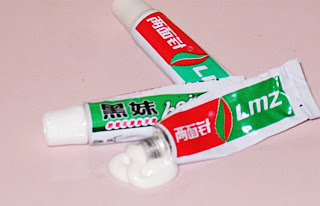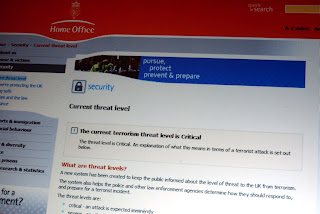 Some Chinese toothpaste manufacturers have been criticized for adding engine coolant to their products
Some Chinese toothpaste manufacturers have been criticized for adding engine coolant to their products
China continues to make world headlines with many Western media organisations being particularly critical of the Chinese government as well as policy. In particular, their has been a great deal of focus on the Chinese government’s apparent arrogance and failure to act decisively with regards to quality standards on a number of exports which have caused concern in the west. Two months ago, exports of dog and cat food created anger amongst pet owners in the US after their pets became sick or died after eating Chinese products containing melamine. The substance was added to the food in order to boost perceived protein levels. But the chemical proved fatal to dozens of animals across the United States. The product was swiftly withdrawn, but within weeks another scare created even more concern for the American public after the FDA announced that toothpaste imported from China contained
Diethylene glycol, a chemical more often used as an engine coolant [
BBC]. The substance, described by the FDA as being a huge cause for concern, was dismissed as harmless by Chinese officials. Most recently has been the recall of toy trains which had been painted with lead paint – banned under regulations applying to children’s toys in the west. The Thomas the Tank Engine toys were swiftly recalled, but many disappointed children may have to wait weeks for a replacement. The company involved, RC2, has said that it may take as long as 6 to 8 weeks to mail back a replacement. Consumers may have to wait even longer for shipping costs to be refunded, since they are dealt with at another building. And it was only after parents reacted angrily that the company reversed the decision not to cover mailing costs.
The problems associated with all of these recalls, and public concerns associated with them, highlight the realities of off-shoring. Products produced abroad, out of sight of tightly controlled public regulators at home, can lead to many issues being overlooked or even ignored altogether. Many of the companies which licence Chinese manufacturers to make their products are extremely secretive about their operations. This makes it all the more difficult to scrutinize levels of safety both within the product itself and for those workers manufacturing it. Even when it comes to inspecting the thousands of products entering the West every year, control has become an issue with fewer. In the US, the Consumer Product Safety Commission has fewer employees than they did 20 years ago.
Governments on both sides need to take stock. In China, it is a matter of reputation as well as issues of safety and workers’ rights. For the West it is an economic issue. If cheap imports are stopped or curtailed, either by bans and withdrawals, or by the public’s refusal to buy such products which they perceive to be dangerous, manufacturing bases may shift resulting in price increases.
In China, premier Wen has insisted he will crack down on bad practices. There have been signs that he means business. Recently a top official was sentenced to death for taking bribes in connection with the manufacturing of fake medicine. And most recently dozens have been arrested including two officials responsible for allowing the enforced slavery of children and adults within brick kiln factories [
BBC]. According to the Xinhua news agency, two of those arrested were officials at the head of a labour inspection team in the Yongii region of Shanxi Province. According to police 55 other people were being investigated in 15 separate cases of slavery at brick kilns. According to the state media organisation, 591 workers including 51 had been freed across two provinces, Henan and Shanxi. But this high profile case may be just the tip of a very big iceberg. One Xinhua journalist revealed to
tvnewswatch that it was very common for adults to be abducted after being plied with drink laced with drugs, only to find themselves miles from home forced to work for little or no money. Unemployment and an increased homeless population is further escalating the problem as people are enticed by non-existent promises of work but are instead lured into slave factories. The West too has an obligation to put pressure on both its own manufacturers, as well as the Chinese government, to crack down on these practices. A failure to do so may have far graver consequences than the recall of tubes of toothpaste and toy trains. Amongst the older population in China, many of whom do not benefit from China’s increased economic success, there is still a strong admiration and nostalgia for Mao. He brought about a popular revolution built much on the grievances of a subjugated and poor peasant population. If the balance between rich and poor, as well as continued exploitation of peasants is not addressed, China may see history repeat itself.




